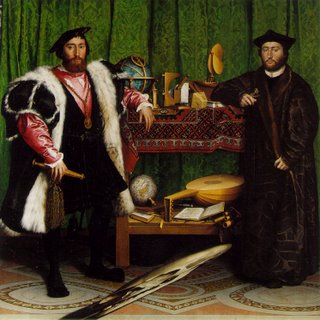Welcome to the TRHS AP European History document blog!
Each week, you will be given historical primary and secondary documents to analyze and answer questions about. Your responses will be turned in here, on the blog, and you will be required to respond to each other as well.
This blog is for the use of our class ONLY, and it should not be used to communicate with each other about other classes, etc. Occasionally, I may post class announcements (for example, if I forgot to tell you something in class), so you will need to make sure and check the blog regularly. I will do my best to explicitly tell you when you have a blog assignment, but there's always the possibility that I will forget. Thus, take the initiative to check the blog on your own!
This is intended to be a fun assignment, as well as to help you increase your skills in analyzing historical documents, which is a key element of both the course and the exam. Please keep all comments school-appropriate. Abuse of the blog will result in a failing grade for this portion of your overall grade, so please don't abuse it.
Here's to a great year, and to 9 passing grades on the AP exam in May!
